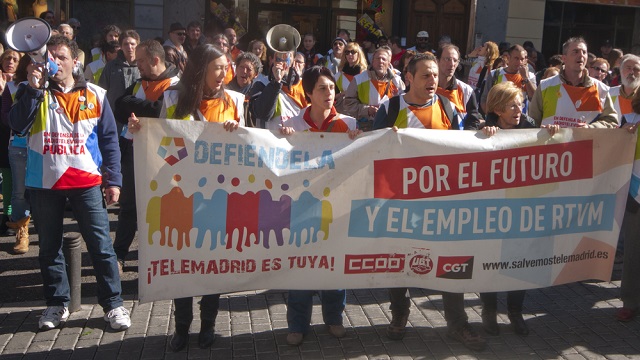5 Consequences When CEOs Play Superman

CEOs traditionally consider themselves to be larger-than-life figures: the superheroes of the C-suite. And with tomorrow’s release of Man of Steel, the latest movie to extol the legendary triumphs of Superman, this is a moment to examine how many chief executives misinterpret and mishandle what this comic-book figure stands for.
The similarities between the Superman myth and the beliefs held by people who run companies are hard to argue. Many CEOs simply embrace the fact they’re stronger, smarter, faster and, in general, more special than anyone else. They see themselves as being the gift to a particular enterprise and even humanity.
Even if a CEO hasn’t been brought on to “save” a company in the midst of a financial or ethical crisis, a chief executive with a superman complex will seize the opportunity to transform his domain anyway, like it or not.
To be clear, some top managers do have a noble purpose, with a relatively ego-free desire to take a company from an ordinary to extraordinary level. The mythic Superman – think of unassuming Clark Kent hiding his powerful identity so he wouldn’t have to take credit for constantly saving the world – operates out of enlightened self-interest. However, many CEOs revert to their shadow sides when faced with opposition from their team.
Here are five ways otherwise well-meaning CEOs use Superman qualities for their own gain and, at times, to the detriment of their companies.
1. They defy the rules. Superman landed on earth with some extraordinary powers, so the laws of nature usually didn’t apply to him. Some CEOs feel the same way – that restrictions are for mere mortals. Think of top managers who park their vehicles in areas reserved for the handicapped, as Steve Jobs did, or fudge their expenses because their “cause” warrants it. It’s not the best way to garner the respect of one’s team, is it?
2. They don’t acknowledge their vulnerability. Superman’s Achilles heel is kryptonite. Unfortunately, not all CEOs have figured out or are aware of which of their less desirable personality traits could be their downfall. What’s worse, some CEOs know what typically unhinges them, but either hide it or won’t acknowledge it. So, they proceed to behave like “men of steel” without a sense they can be brought down.
Even if they do have a clue, many CEOs won’t ask for help because, as Supermen, they either don’t respect or may suspect the advice of mere mortals, including their own board of directors.
3. They impose their quest on others. Jobs was notorious when it came to his mission. Essentially he told people, Either you help me make a dent in the universe or get out of my way. It’s an unsavory all-or-nothing proposition, and many CEOs fall prey to insisting on getting credit for the actual quest, which should actually be their noble purpose.
4. They confuse their role with their true identity. The television version of Superman, who donned his cape in a phone booth every week, was very clear about drawing a line between his power and who he was. CEOs don’t always rise to that occasion when faced with crises or challenges. Their egos get drawn into what they’re doing – because their accomplishments may garner them honors or financial perks – leading to embracing power for its own sake. Of course, team members and other employees immediately sense the opportunism.
5. They confuse flying fast with the freedom to take shortcuts. Superman’s ability to soar the skies was integral to his noble purpose. But many CEOs consider speed as a conduit to bringing a product to market, sometimes bypassing safety or quality requirements in the process. If speed is a CEO’s rationale for cost-cutting, you’ve got an ethical problem or quality-control issue.
Here’s what I’ve observed in my two decades of advising chief executives. Many CEOs are brilliant strategists. They’re genuine Supermen when it comes to commandeering a company. But some, despite their smarts, have no noble purpose. And having superpowers, without the enlightened self-interest in making your company extraordinary, is the fast track to self-destruction.
CEOs with powerful gifts need a super playground – yes, their company – in which to use their capabilities to create their company’s meaningful future. Otherwise, they’re just frittering away their strengths and inevitably wind up playing the ego game, making them smart, but not wise.
This article is by Prasad Kaipa who coaches and advises CEOS all over the world. He co-authored From Smart to Wise: Acting and Leading with Wisdom (Jossey-Bass,2013).





